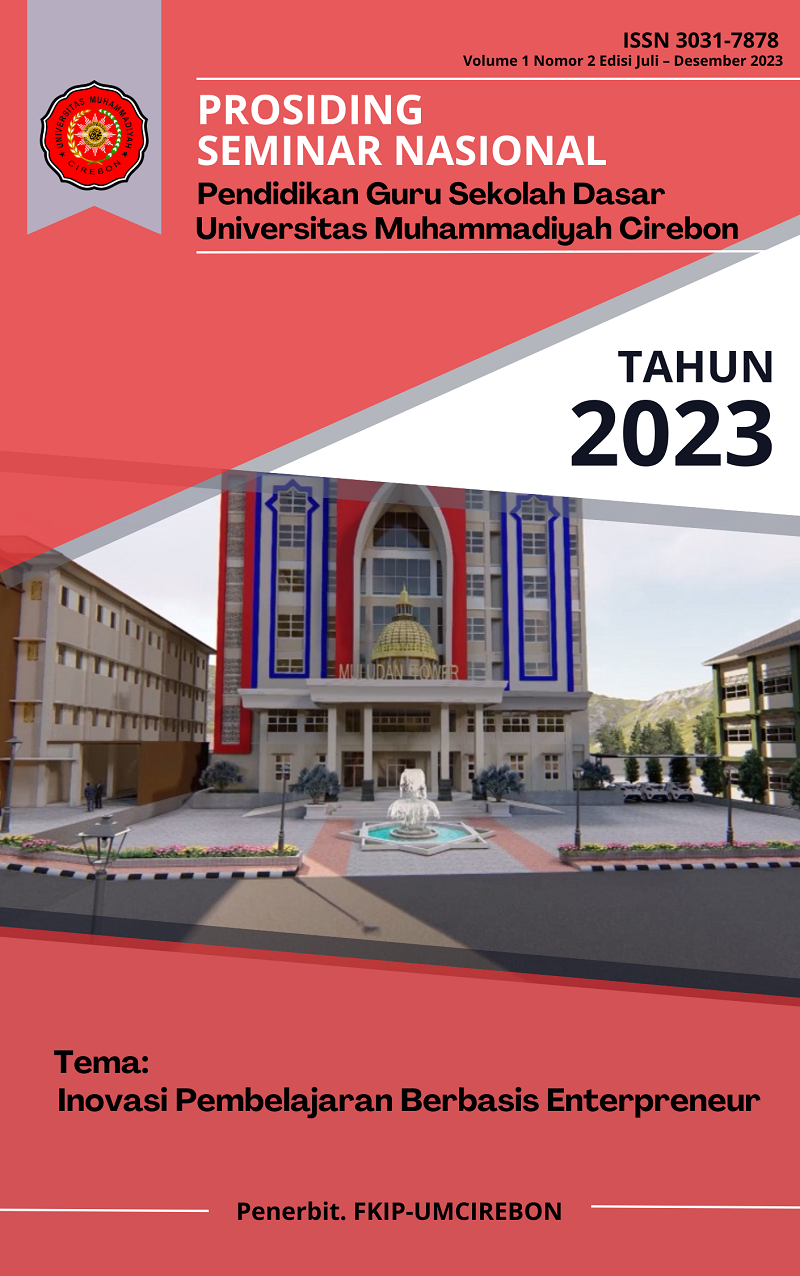IDENTIFIKASI POLA PERILAKU PESERTA DIDIK UNDERACHIVEMENT DALAM PEMBELAJARAN MATEMATIKA KELAS V DI SD NEGERI 2 SETU KULON
Abstract
This research is motivated by the experiences of underachieving students during the process of learning mathematics. These students exhibit behaviors that are influenced by their educators, peers, and parents, resulting in underachievement or below-average academic performance. The objective of this study is to understand the behavior patterns of underachieving students during mathematics lessons in fifth grade. The research methodology employed is qualitative descriptive research, which aims to delve deeper into the underachievement phenomenon. The research findings reveal distinct behavior differences between achieving students and underachieving students. Achieving students tend to display positive behaviors such as high motivation, self-confidence, and creativity, while underachieving students exhibit negative behaviors such as easily giving up, avoidance, rebellion against educators, and selective socialization.The study also outlines the learning outcomes of underachieving students in the fifth grade. These underachieving students consistently display disruptive behaviors that significantly impact their learning outcomes. Throughout the discussion, this research underscores the importance of support from educators and the learning environment in assisting underachieving students to overcome obstacles and reach their learning potential. Steps to transform negative thought patterns, develop self-confidence, and address avoidance behaviors emerge as crucial factors in facilitating the academic development of underachieving students.
Keywords: Underachieving Students, Learning Outcomes, Educators

